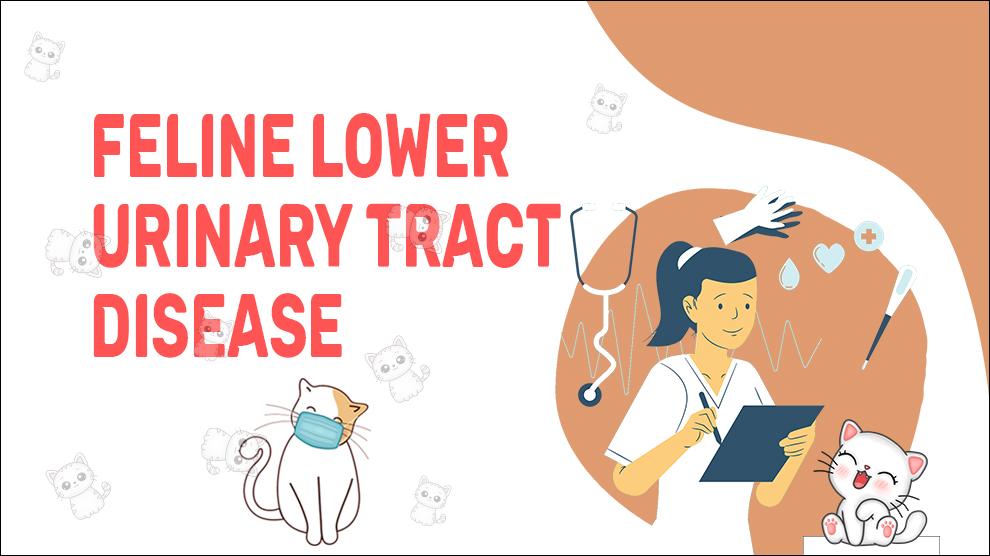What Is Feline Lower Urinary Tract Disease?
FLUTD is a common condition in cats that affects the bladder and urethra.
It is a term used to describe a variety of disorders that affect the lower urinary tract, including urinary tract infections, bladder stones, and bladder inflammation.
FLUTD can cause pain and discomfort in cats and can lead to more serious health problems if left untreated.
Clinical Signs Of Feline Lower Urinary Tract Disease
The symptoms of FLUTD can vary depending on the underlying cause, but common signs to look out for include:
- Frequent urination
- Straining to urinate
- Blood in the urine
- Licking the genital area excessively
- Urinating outside of the litter box
- Crying or vocalizing when urinating
- Lethargy
- Loss of appetite
- Vomiting
- Difficulty Urinating
- Cloudy Urine
- Excessive Grooming
Treatment Options For Feline Lower Urinary Tract Disease
The treatment of FLUTD will depend on the underlying cause of the condition.
Treatment options may include:
- Medications: Antibiotics may be prescribed to treat infections, and pain medication may be given to relieve discomfort.
- Surgery: In cases where bladder stones or other anatomical abnormalities are present, surgery may be necessary.
- Fluid therapy: If the cat is dehydrated, fluid therapy may be recommended.
- Urinary acidifiers: In cases where the urine pH is too high, urinary acidifiers may be prescribed to help prevent the formation of bladder stones.
- Diet modification: Feeding cats a diet that is low in magnesium and ash content can help prevent the formation of bladder stones.
Home Remedies For Feline Lower Urinary Tract Disease
There are several home remedies that may help manage FLUTD symptoms.
These include increasing water intake by adding water to your cat's food or providing a water fountain, using unscented litter, and providing a stress-free environment for your cat.
However, it is important to note that home remedies should never be used in place of veterinary care, as urinary tract problems can quickly become serious if left untreated.
How To Prevent Feline Lower Urinary Tract Disease?
To help prevent FLUTD in cats, pet owners can take the following steps:
- Provide plenty of fresh water: Encourage cats to drink plenty of water by providing a clean, fresh source of water at all times.
- Feed a high-quality diet: Feeding cats a diet that is low in magnesium and ash content can help prevent the formation of bladder stones.
- Reduce stress: Minimize stressful situations for cats by providing a quiet, comfortable environment.
- Keep the litter box clean: Clean the litter box regularly to prevent bacterial growth and ensure the cat has a clean place to urinate.
Affected Cat Breeds Of Feline Lower Urinary Tract Disease
FLUTD can affect any breed of cat, although some breeds may be more prone to developing urinary tract problems. These include Persian cats, Siamese cats, and Himalayan cats.
Causes For Feline Lower Urinary Tract Disease
Causes:
The exact cause of FLUTD is not always known, but there are several factors that can contribute to the development of the condition.
These include:
- Diet: Feeding cats a diet that is high in magnesium or ash content can contribute to the formation of bladder stones.
- Dehydration: Cats that do not consume enough water are at an increased risk of developing FLUTD.
- Stress: Stressful situations such as moving, introducing new pets or people, or changes in routine can cause FLUTD in cats.
- Infections: Bacterial or viral infections can lead to the development of FLUTD.
- Anatomical abnormalities: Some cats may be born with abnormalities in their urinary tract that can lead to FLUTD.
When To See A Vet For Feline Lower Urinary Tract Disease?
If you notice any symptoms of FLUTD in your cat, it is important to seek veterinary care right away.
FLUTD can be painful and uncomfortable for cats, and prompt treatment is necessary to prevent more serious health problems from developing.
Food Suggestions For Feline Lower Urinary Tract Disease
Feeding a high-quality, balanced diet is important for preventing FLUTD.
In addition, special urinary diets may be recommended for cats with a history of urinary tract problems.
These diets are designed to prevent crystals from forming in the urine and may contain ingredients such as cranberries, which can help prevent urinary tract infections.
Conclusion
FLUTD is a common problem in cats, but it can be managed with proper veterinary care and lifestyle changes.
If you notice any signs of urinary tract problems, it is important to seek veterinary care right away to prevent serious complications.
By providing a healthy diet, fresh water, and a stress-free environment, you can help keep your cat's urinary tract healthy and prevent future problems.











